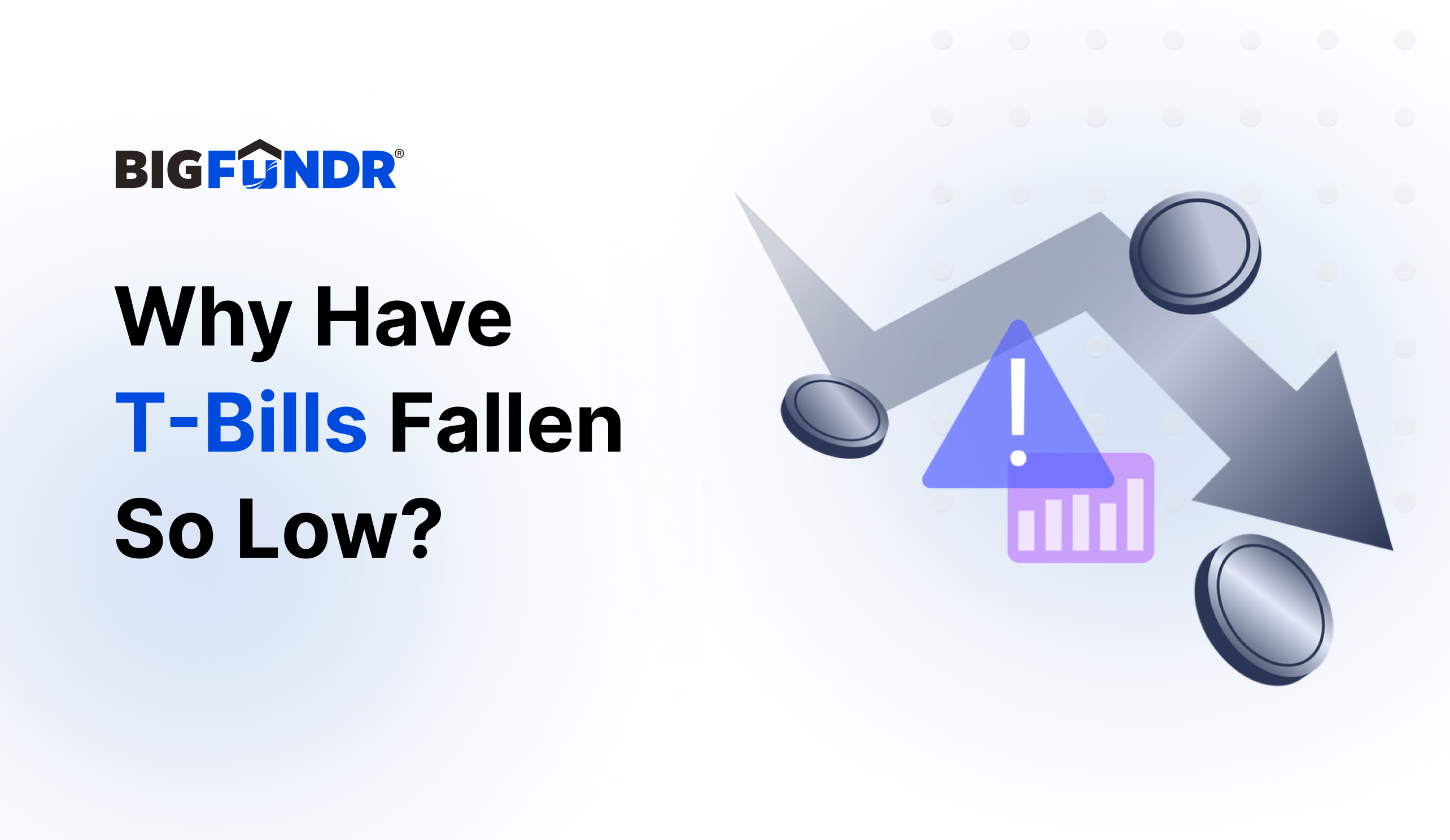For most investors, the logic seems fixed: higher returns come with higher risk, and safety means sacrificing growth. It’s a trade-off many Singaporeans have come to accept — either settle for the low returns of a fixed deposit, or ride the volatility of public markets in search of yield.
But what if there was a third option?
Rising inflation, unstable markets, and the growing need for financial security have led many investors to seek a more balanced alternative — one that offers predictable income and lower volatility along with higher rates of returns.
This article explores what private credit is, how it works, and why BigFundr offers a compelling middle ground for modern investors seeking steady, fixed income potential.
Why Traditional Options Like Fixed Deposits and Bonds May Not Be Enough
Driven by rising costs of living, unpredictable markets and a desire for more preferable alternatives, investors have begun seeking out new ways to generate returns without taking on unnecessary risk.
This appetite for alternatives has fueled everything from robo-advisors and thematic ETFs to, more prominently, cryptocurrency. Even institutional players, once hesitant, have entered the digital asset space in search of higher yields and diversification. But given its inherent volatility and lack of regulation in the sector, digital currency investments remain highly speculative and risky.
Simultaneously, traditional income-generating options like fixed deposits and bonds have steadily lost their appeal.
Low Returns, High Inflation

With interest rates remaining low for much of the last decade, fixed deposits in Singapore typically yield between 0.30% and 2.45% per annum. While they offer capital safety, the returns often fail to outpace inflation, resulting in a slow erosion of real purchasing power over time.
On the other hand, where bonds offer better returns than fixed deposits and can be sold before maturity, the asset’s market value is heavily influenced by interest rates. When rates rise, the price of existing bonds usually fall in response, meaning that investors who sell early may face capital losses. In this way, bonds may offer more liquidity than fixed deposits, but still expose investors to market risk.
Liquidity can also be an issue, especially for retail investors without access to bond trading platforms or institutional-grade pricing. Unlike stocks, bonds are not always easy to buy or sell on demand, especially in smaller quantities.
Transactions may involve higher fees, wider bid-ask spreads, or require going through intermediaries. And all of these can eat into returns or make exiting a position more difficult when cash is needed.
While both forms of investment may have their advantages, it is clear that a flexible approach to wealth preservation and income generation is called for. This is where the search for alternative fixed income strategies begins.
And it’s what has led many investors, both institutional and individual, to explore the growing space of private credit.
What Is Private Credit and How Does It Offer Fixed Income Potential?

Private credit had its roots in traditional private lending practices, but it experienced significant growth following the 2007–2009 Global Financial Crisis.
As regulatory changes tightened bank lending standards, non-bank lenders stepped in to fill the financing gap for businesses, particularly small and medium-sized enterprises. This shift allowed investors to access higher yields through direct lending opportunities.
And over the past decade, the private credit market has grown exponentially. For example, according to a report by BNY reporting the private credit market is projected to reach $3.5 trillion by 2028.
So, the question is: why is private credit an essential part of your fixed income portfolio?
The answer lies in how private credit loans are structured and the kind of income they generate.
Better Returns with Private Credit Investments
When you invest in private credit, you're essentially acting as a lender. Your capital is used to finance a specific loan, for example, an SME looking to expand operations, or a property developer bridging funding for a project. In return, you receive fixed, contractual interest payments over the life of the loan, typically on a monthly or quarterly basis.
So why do these borrowers turn to private credit instead of banks?
In many cases, they require faster funding, more flexible terms or bespoke deal structures that traditional banks are unable or unwilling to provide. This allows private credit lenders to charge a premium for their funds, thus providing higher returns compared to typical fixed income products like bonds or fixed deposits.
It is however important to note that private credit is not without risk. These loans are not publicly traded and are often extended to borrowers who fall outside conventional lending profiles.
That said, well-structured private credit deals like those offered on platforms like BigFundr include rigorous credit assessments, legal due diligence and contractual safeguards to help manage these risks.
Bridging the Fixed Income Investment Gap with BigFundr

For years, private credit was reserved for institutional investors and ultra-high-net-worth individuals. High entry requirements, complex legal structures, and limited visibility made it largely inaccessible to the average investor.
Even for those with capital, accessing private deals, especially international ones, required connections, legal expertise and the willingness to navigate unfamiliar markets.
BigFundr changes all of that.
As a MAS-licensed investment platform based in Singapore, BigFundr democratises fixed income investing by opening the door to carefully vetted private credit deals, many of which were once out of reach for regular investors.
Each investment opportunity is backed by real estate and comes with transparent documentation, due diligence reports and a clear repayment schedule. BigFundr manages the legal, credit, and operational complexities on behalf of investors, making it simple to participate through a fully digital platform. Investors can browse deals, review risk assessments, and allocate capital with just a few clicks.
More importantly, BigFundr structures every deal with investor protection in mind. It holds the first legal charge on all collateral, provides access to investments with personal guarantees from borrowers and works with external legal and fund management partners to ensure regulatory and operational integrity. Even currency exposure is hedged, with all investments and repayments conducted in Singapore Dollars.
The result is a modern fixed income investment that offers the best of both worlds: predictable income and active risk management. All while still providing greater accessibility and stronger yield potential.
So how does private credit via BigFundr actually compare to more traditional options like fixed deposits and bonds?
To help illustrate the difference, we’ve broken down some of the key features investors typically care about — including returns, accessibility, risk level, and protection measures.
The table below offers a side-by-side view of how BigFundr’s private credit investments stack up against familiar fixed income instruments.
Who Should Consider Investing Through BigFundr?
Not every investor wants the stress of timing the market or watching portfolio values swing with every headline. For many, the goal is simple: protect capital, generate steady income, and diversify beyond traditional stocks and savings accounts.
With rising inflation and market volatility, more Singaporeans are actively looking for investment options that balance risk, return, and reliability.
BigFundr offers a way to achieve just that especially for those who want to access secured, professionally vetted income opportunities easily. Here’s who can benefit from investing through BigFundr:
- Investors seeking predicatable, low-volatility returns - Ideal for those who want consistent income without exposure to the daily ups and downs of public markets
- Anyone looking to diversify beyond equities and deposits - Adds a new asset class to your portfolio — one that isn't directly tied to stock market performance or central bank rates
- Income-focused individuals planning for retirement or lifestyle stability - Regular interest payments offer a source of passive income that supports long-term financial planning.
- Investors with a conversative mindset but frustrated by low yields - For those who don't want to take on stock-level risk but still want better returns that fixed deposits
- Professionals or busy individuals who want a hands-off investment experience - BigFundr handles deal sourcing, due diligence, legal checks, and monitoring, allowing you to invest confidently without managing the process yourself.
BigFundr: A Modern Alternative to Bonds and Fixed Deposits

BigFundr represents a new kind of fixed income opportunity — one that blends the reliability of traditional instruments with the accessibility and performance of a modern digital platform. It’s not a fixed deposit and it’s not a bond, but a structured, secured investment that delivers steady returns backed by real assets.
For investors who want to earn more without taking unnecessary risks, BigFundr offers a smart, practical solution. It provides access to private credit investments that were once reserved for institutions, but are now available to everyday investors who want to grow their wealth without compromising on control, clarity, or confidence.
Whether you’re planning for retirement, diversifying your portfolio, or simply looking to put your idle capital to better use — BigFundr can be a valuable addition to your fixed income strategy.
Investing 101 with BigFundr
Stay ahead of the curve with our latest articles and insights about investing.





